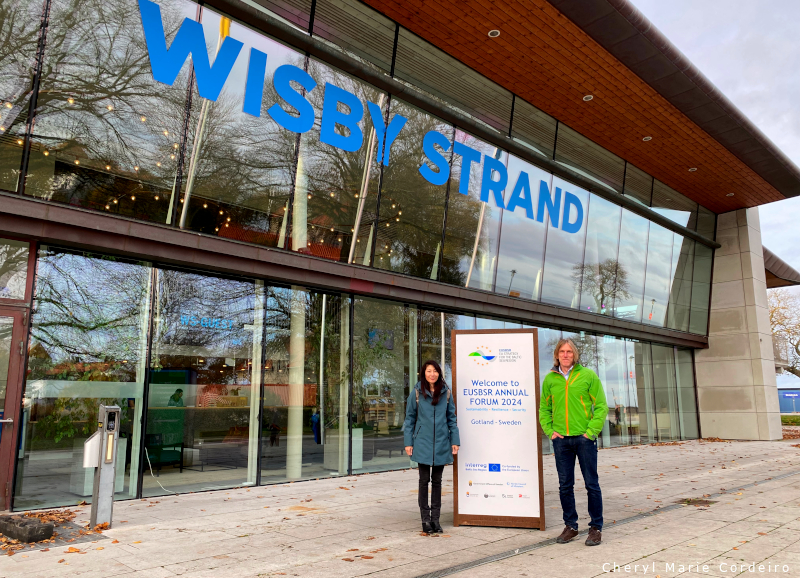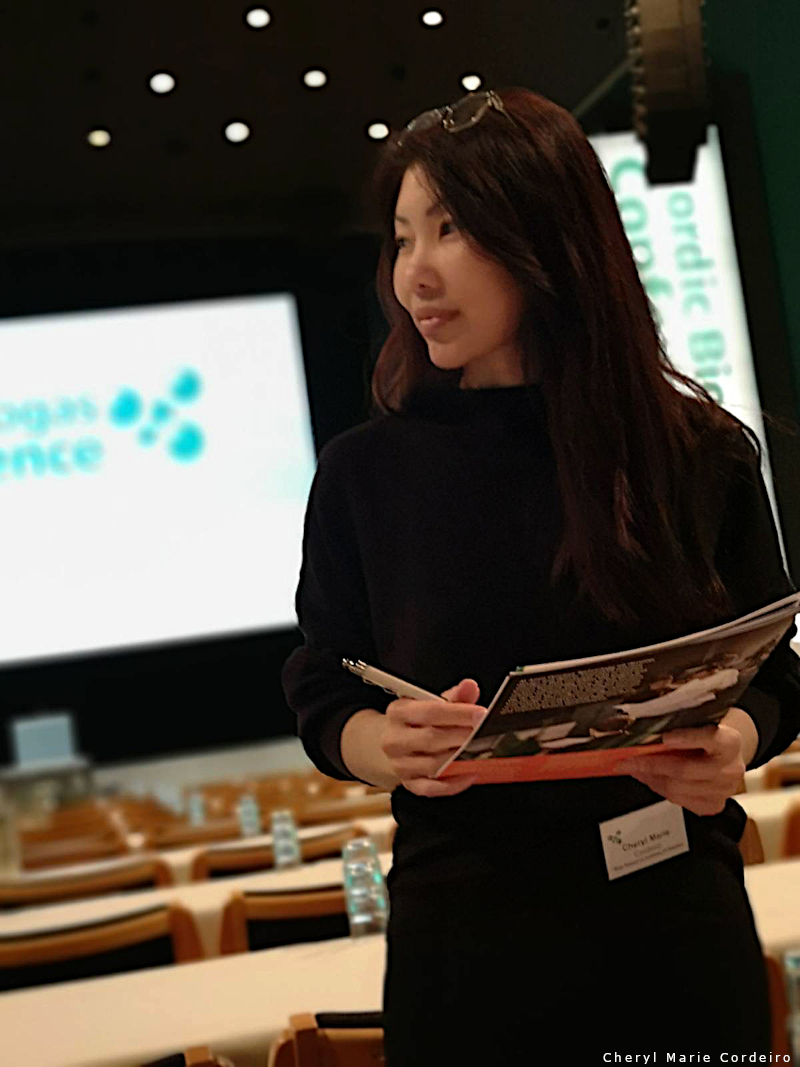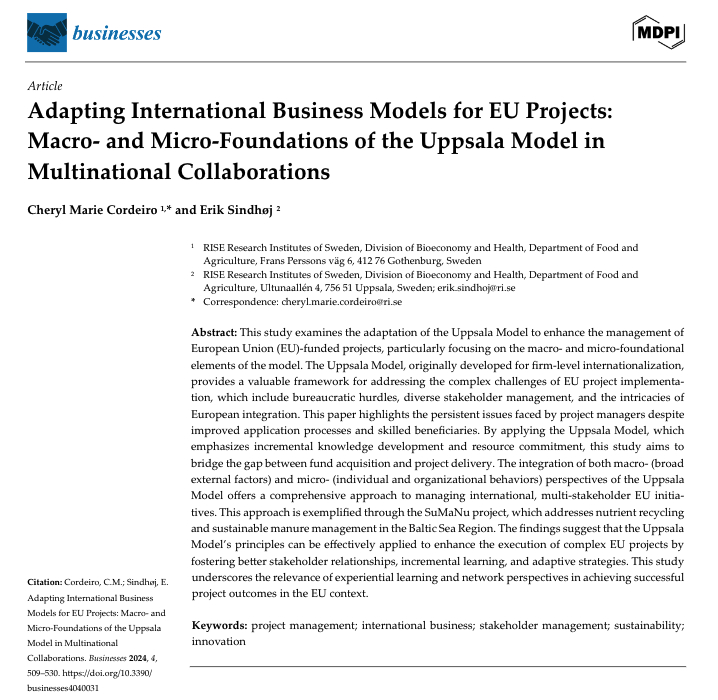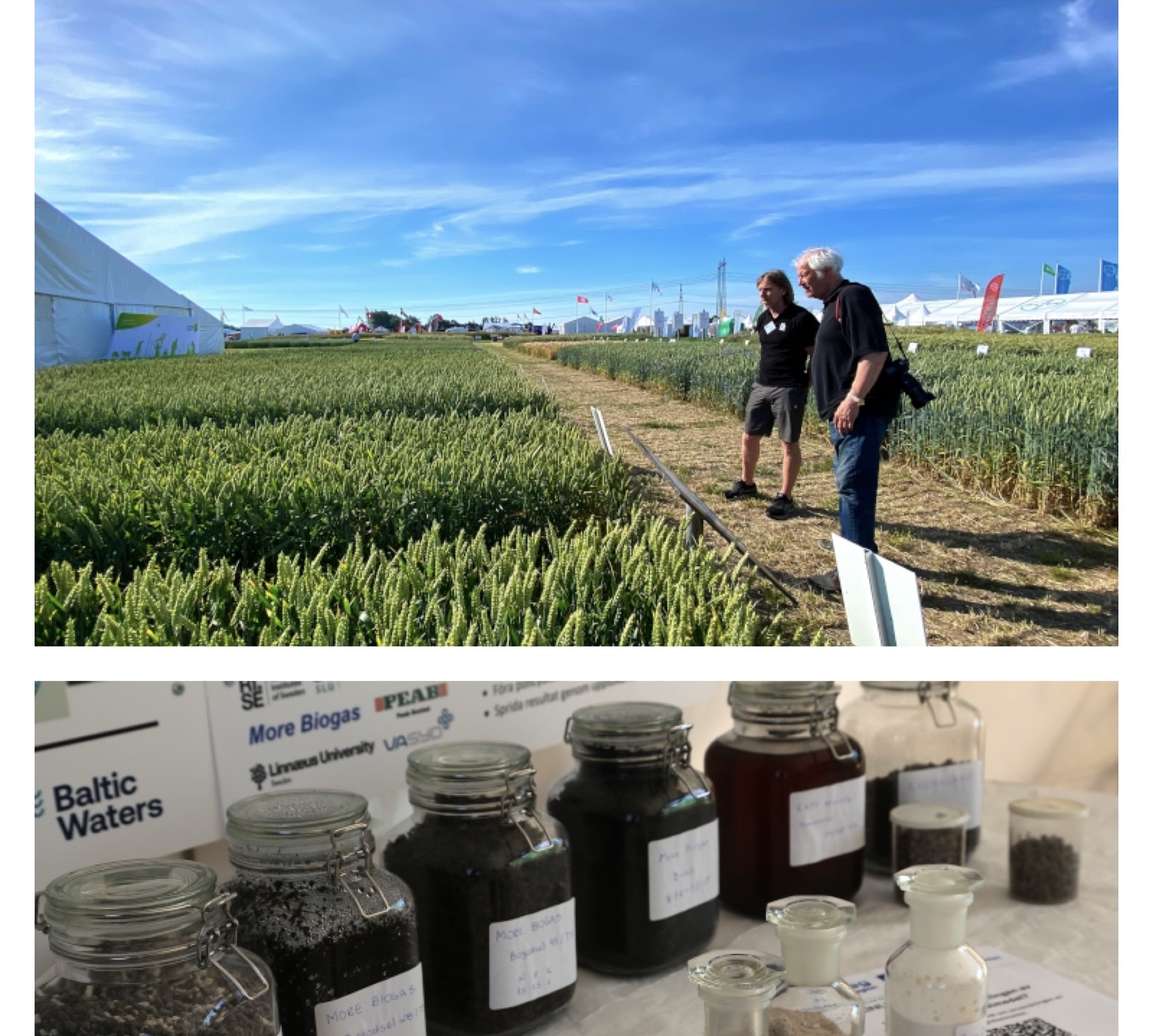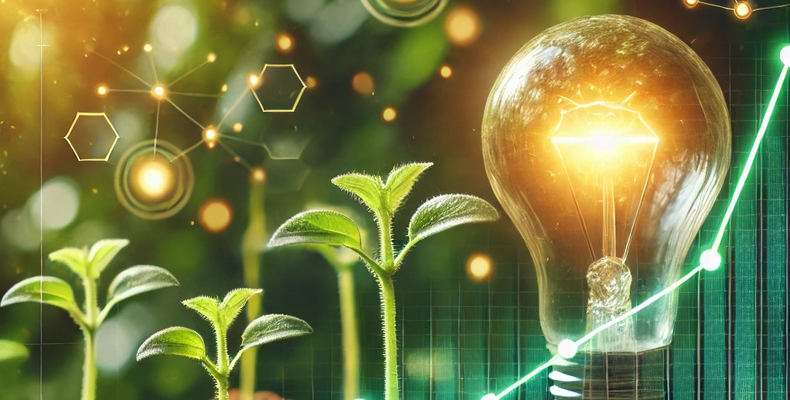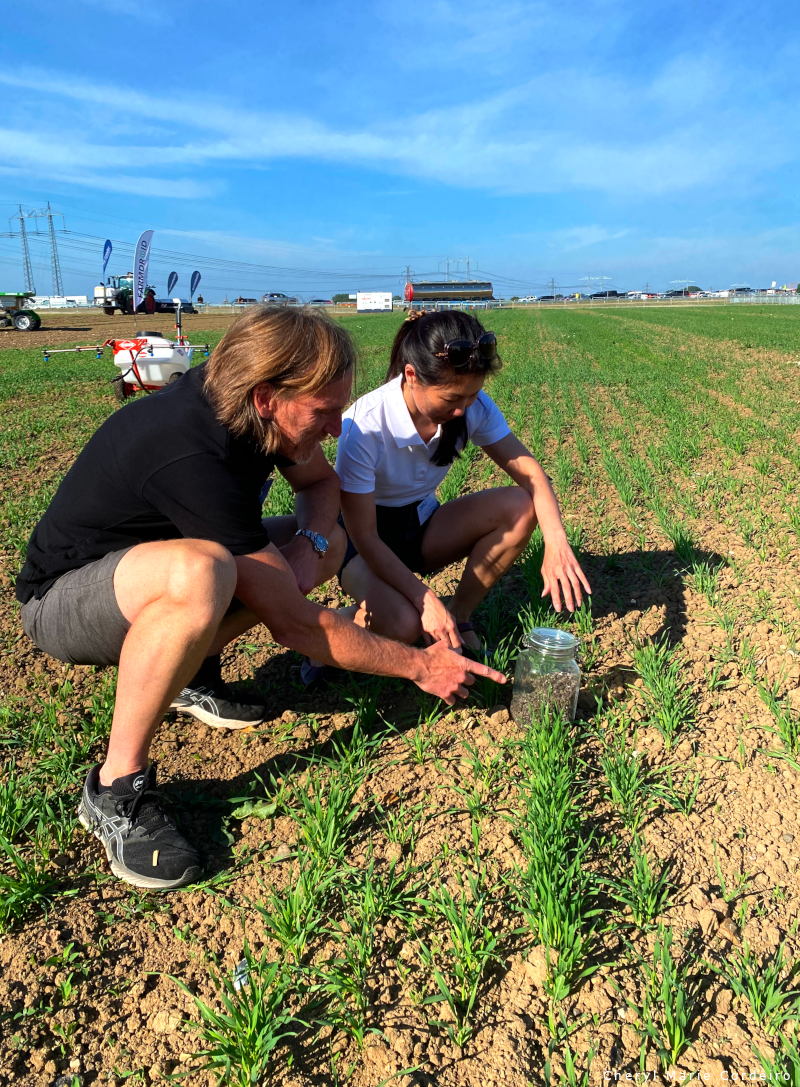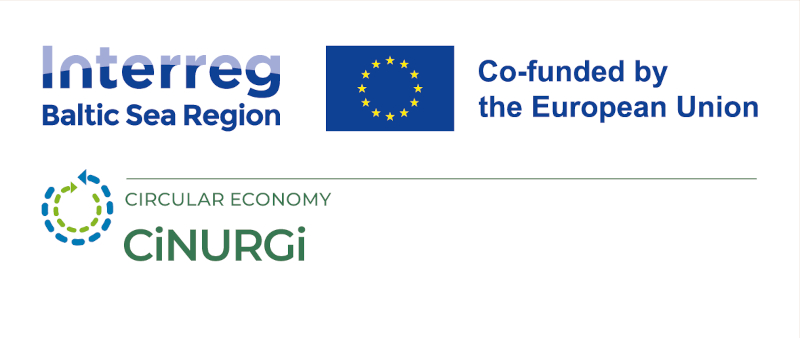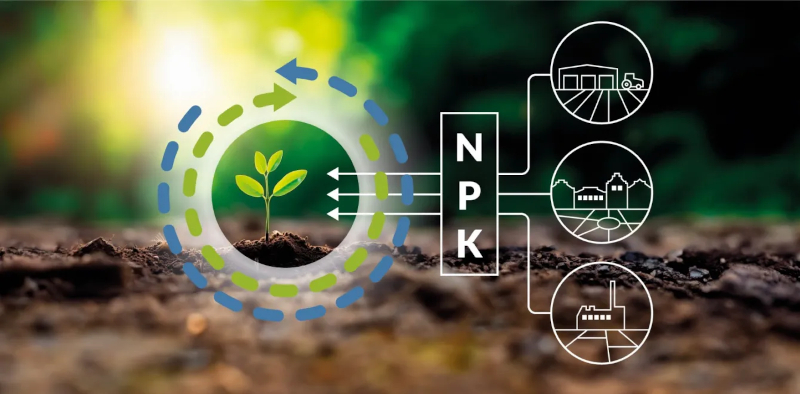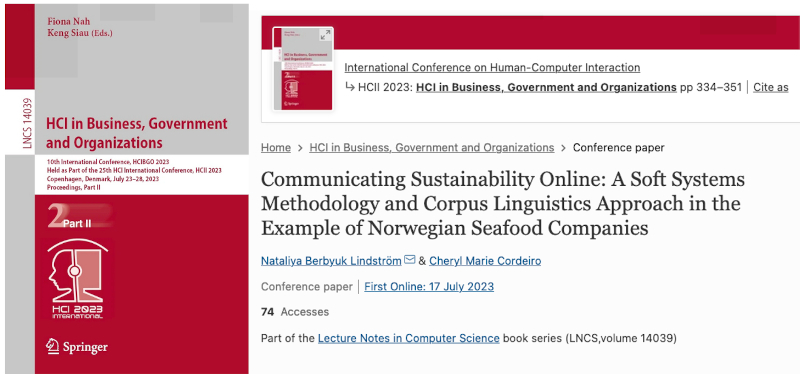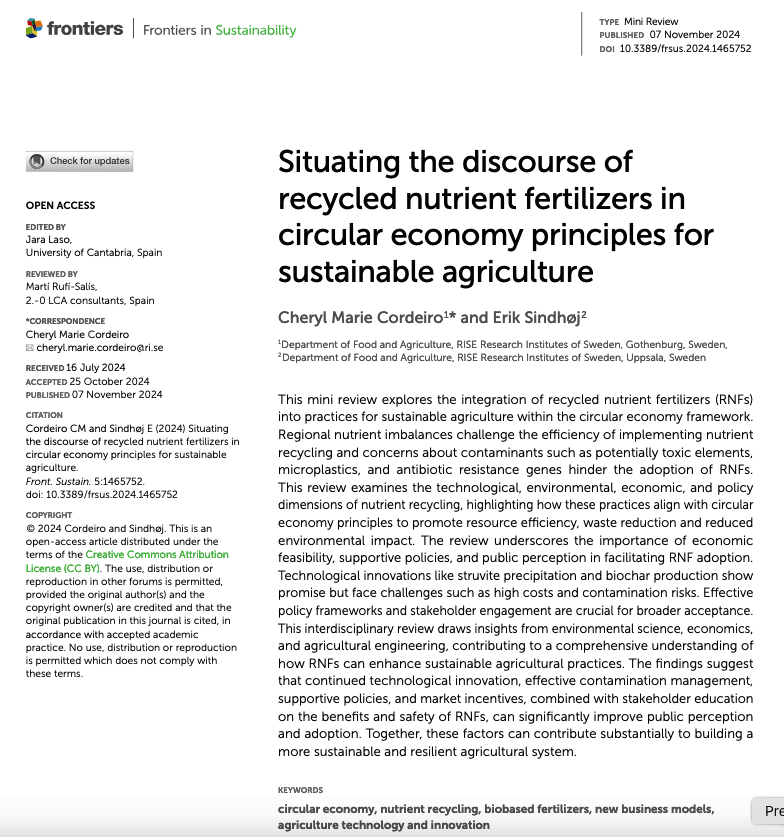
The article explores the multifaceted discourse surrounding recycled nutrient fertilizers (RNFs), examining their technological, environmental, economic, and policy-related dimensions. It highlights how stakeholders’ perceptions and the influence of public and farmer acceptance shape the adoption of RNFs, alongside the critical impact of regulatory and policy frameworks on their implementation.
Citation: Cordeiro CM and Sindhøj E (2024) Situating the discourse of recycled nutrient fertilizers in circular economy principles for sustainable agriculture. Front. Sustain. 5:1465752. doi: 10.3389/frsus.2024.1465752
